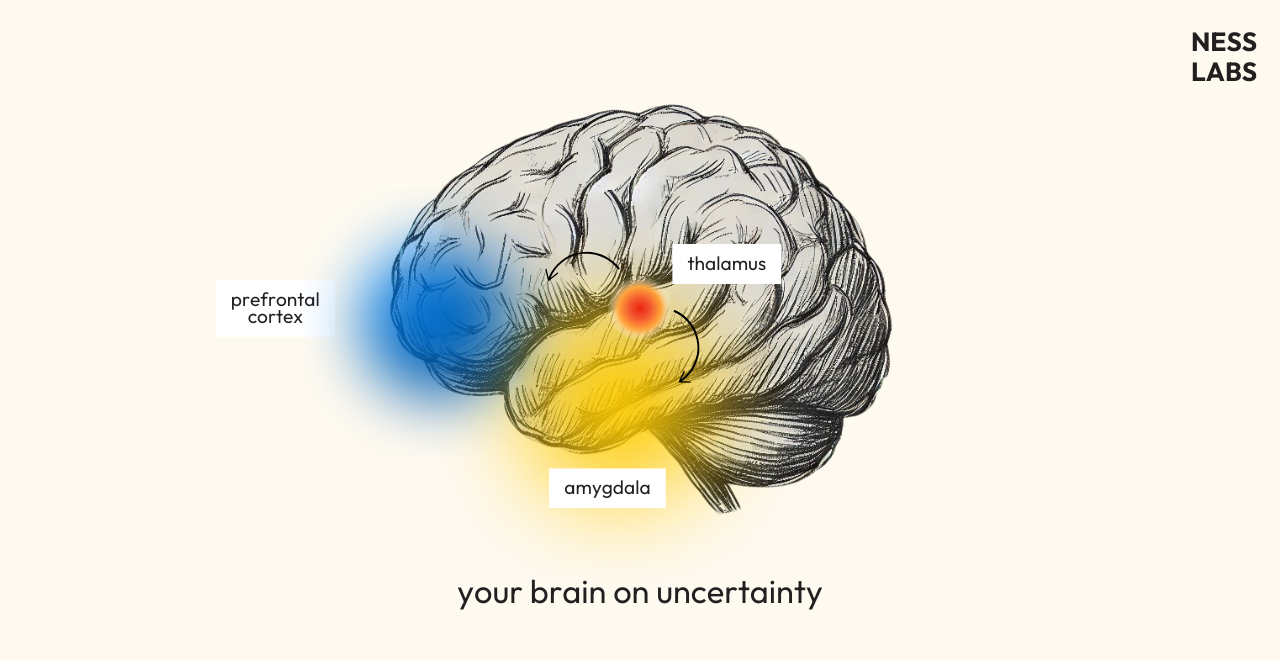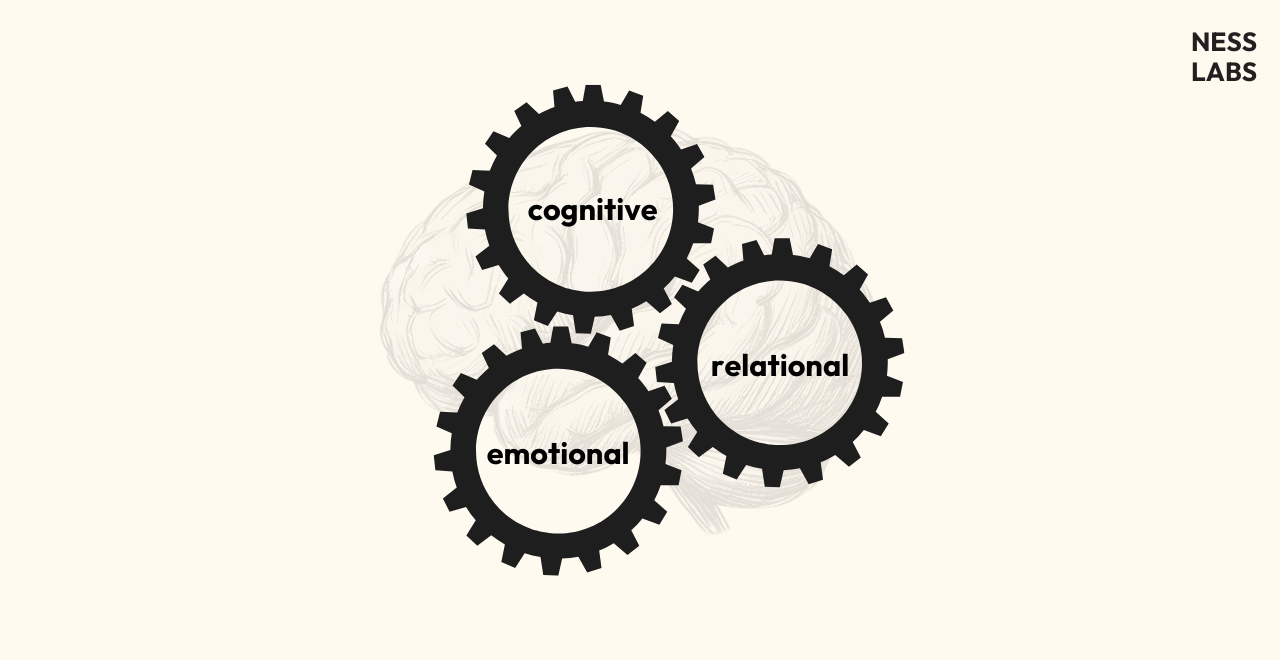We all want certainty. It’s natural – after all, our ancestors needed to know where to find food and how to avoid danger. The more information they had, the better their chances of survival.
But today’s world is different. When the pace of change keeps accelerating and we need to adapt to constant technological, social, and economic shifts, our instinct for certainty can hold us back.
While our ancestors thrived on seeking certainty, our survival now depends on embracing uncertainty rather than avoiding it. So how can we befriend and even leverage uncertainty?

The Neuroscience of Uncertainty
When you’re uncertain, your brain activates two key regions. Your amygdala, the emotional center, treats uncertainty as a potential threat. It releases stress hormones and prepares your body for danger. At the same time, your prefrontal cortex tries to analyze the situation and plan a logical response.
These regions don’t work in isolation. The thalamus connects them, creating a dialogue between your emotional and rational responses. This teaches us something important: handling uncertainty isn’t about suppressing emotions in favor of logic. Instead, it’s about coordinating both parts of yourself to respond more effectively.
Research suggests that this integration of thinking and feeling leads to better decisions under uncertainty. When we work with our brain’s natural responses rather than fighting them, we navigate uncertain situations more successfully.
From Anxiety to Curiosity
Unfortunately, many of us fall into predictable traps when facing uncertainty. We fall prey to analysis paralysis, trying to gather every piece of information before acting, or binary thinking where we see only best/worst outcomes rather than the spectrum of possibilities.
We might experience emotional avoidance, attempting to think our way out of uncertainty without processing our emotions first. Often, we try to handle everything alone instead of leveraging social support.
Instead of trying to control everything and go back to an illusory place of certainty, the key to thriving in uncertainty is developing an experimental mindset. Instead of seeing uncertain situations as problems to solve, we can view them as opportunities to run experiments.
This mental shift can have profound effects on your brain:
- It reduces amygdala activation because experiments can’t fail – they just produce data
- It engages your prefrontal cortex in curious exploration rather than threat assessment
- It creates new neural pathways that make uncertainty feel more manageable over time
So next time you face uncertainty, don’t ask “What’s the right answer?” Instead, try approaching the question like a scientist, asking: What could I learn from this experience?
This simple reframe – the willingness to step into the unknown – will help transform anxiety into curiosity. That’s the power of an experimental mindset.
The Three Pillars of Navigating Uncertainty
While we can’t eliminate uncertainty, we can develop better ways to handle it. Here are three evidence-based strategies that work with your brain’s natural responses to uncertainty. You can think of them as three interlocking “gears” working together.

- The cognitive gear. The Plus Minus Next method is a simple metacognitive tool to help you observe your thoughts without getting stuck in them. By examining what’s working (Plus), what isn’t (Minus), and what to try next (Next), you create an actionable framework for processing uncertain situations.
- The emotional gear. Studies show that naming your emotions helps you better manage them. When you label your feelings about uncertainty – whether it’s worry or confusion – you activate your prefrontal cortex and reduce amygdala activation. This simple practice turns overwhelm into a more manageable experience.
- The relational gear. Connect with others facing similar uncertainties. Learn in public by sharing your experiences and decisions with other people. This will give you new perspectives by helping you tap into collective wisdom.
Uncertainty creates space for growth and discovery. Through metacognition, emotional regulation, and social connection, understanding and adapting your brain’s automatic response will help you work with uncertainty rather than against it.
Your brain might prefer certainty, but it’s fully equipped to handle the unknown. The real question isn’t whether you can handle uncertainty – it’s what you’ll discover when you approach it with an experimental mindset.
